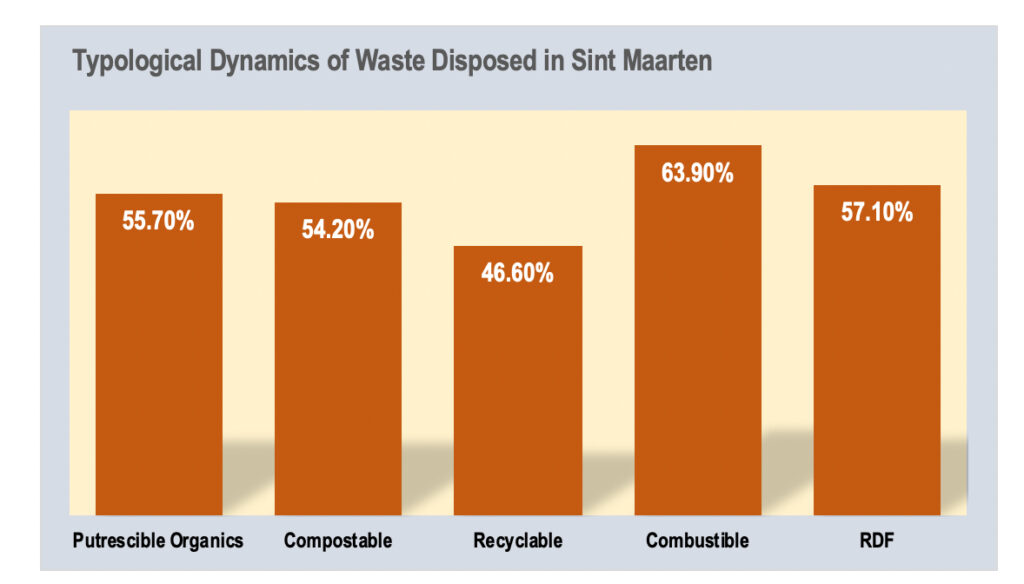Washington, World Bank, December 31, 2020 (Sint Maarten ISWM)
Aim Texas Consultants has completed the Sint Maarten National Solid Waste Management Strategy and submitted to the World Bank.
The Strategy covered the whole value chain of municipal solid waste management, from generation, to collection, diversion, processing, disposal, and landfill operations in Sint Maarten. All the analyses and recommendations are based on existing data and/or data collected by the Consultant during technical and financial feasibility studies conducted.
Objective of this SWM strategy is to formulate a report that covers the strategies and actionable sector interventions for the transformation of the SWM of Sint Maarten into an Integrated Waste Management System (ISWMS), based on findings from the tasks previously conducted by the Consultant.
Sint Maarten generates an estimated 128 ths. tons per year of waste (about 350 tons per day), which is managed by the Ministry of Public Housing, Spatial Planning, Environment and Infrastructure (VROMI). The situation has been exacerbated since Hurricane Irma hit the island on September 6, 2017, and destructed over 90% of its main infrastructures.
Reconstruction and Development (the World Bank) as an expert authority on redevelopment to manage the recovery via the “Reconstruction and Resilience Trust Fund” (herein after called the “Trust Fund”), which is comprised of a grant of €470 million. But, according to the National Recovery and Resilience Plan (NRRP) the rebuilding of Sint Maarten would require funding of an estimated US$ 2.3 billion. Approximately 55.70% of waste disposed of is putrescible organics, including paper/cardboard, organic waste (food waste, wooden fractions, tire and rubber, and yard waste. 54.20% of it is biodegradable (compostable), 46.60% recyclable, 63.90% combustible, and 57.10% can be converted into RDF for use as secondary fuel.

As a result of gap analysis conducted on the current waste management system of Sint Maarten by the consultant, the following technical options are evaluated for developing the country’s ISWMS:
- Collection Options
- Transfer Options
- Recycling & Resource Recovery Options
- Landfill Options
- Economies of Scale of Technical Options, and
- Enabling Framework Options
- Legal/regulatory and Institutional options
- Financial options
- Economic Instruments options
- Social Inclusion options; and
- Private Sector Participation options.